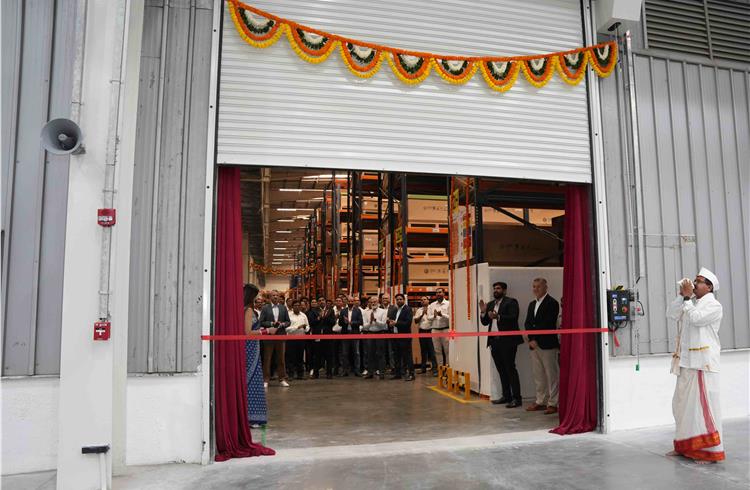Tata Group Invests Rs 950 Crore in Battery-Making Subsidiary Agratas
2024-09-09

According to Tata Sons' annual report, the Tata Group is planning to build a large-scale Gigafactory in the UK and a new manufacturing plant in Gujarat. The report provides details about the investment amount and other key information. Keep reading to learn more about these exciting developments.
The Tata Group has invested Rs 950 crore into its battery manufacturing subsidiary, Agratas, to boost its expansion in the new energy sector. Agratas is working on advanced manufacturing techniques to support the move towards cleaner energy, particularly for the automotive industry.
Agratas is working on establishing state-of-the-art battery manufacturing plants in both India and the UK. According to Tata Sons' 106th annual report, the company plans to build a 40 GWh gigafactory in the UK and a 20 GWh plant in Sanand, Gujarat.
According to the annual report, these new plants will feature the latest technology and are central to the company’s ambition of leading the energy sector. “The company is constructing cutting-edge manufacturing facilities in both India and the UK, including a 40 GWh gigafactory in the UK and a 20 GWh plant in Sanand, Gujarat,” the report said.
The name Agratas blends the Sanskrit word "agra," meaning "leader," with "gravitas," which stands for seriousness and forward-thinking. Agratas designs and manufactures batteries for the automotive and energy sectors. Its initial clients include Tata Group companies Jaguar Land Rover (JLR) and Tata Motors. The company also plans to produce batteries for two-wheelers, commercial vehicles, and energy storage systems.
In the UK, Agratas is collaborating with local partners including Somerset Council, Bridgwater and Taunton College, and the Gravity Smart Campus. They are providing education and training programs designed for the local community, with the goal of engaging residents in the project.
The gigafactory, located on the Gravity Smart Campus near Bridgwater in Somerset, will emphasize community involvement in its development. According to the company, this 40 GWh plant is expected to supply nearly half of the battery manufacturing capacity required for the UK’s automotive sector by the early 2030s.










.jpg)
.jpg)
.jpg)
.jpg)
.jpg)
.jpg)
.jpg)
